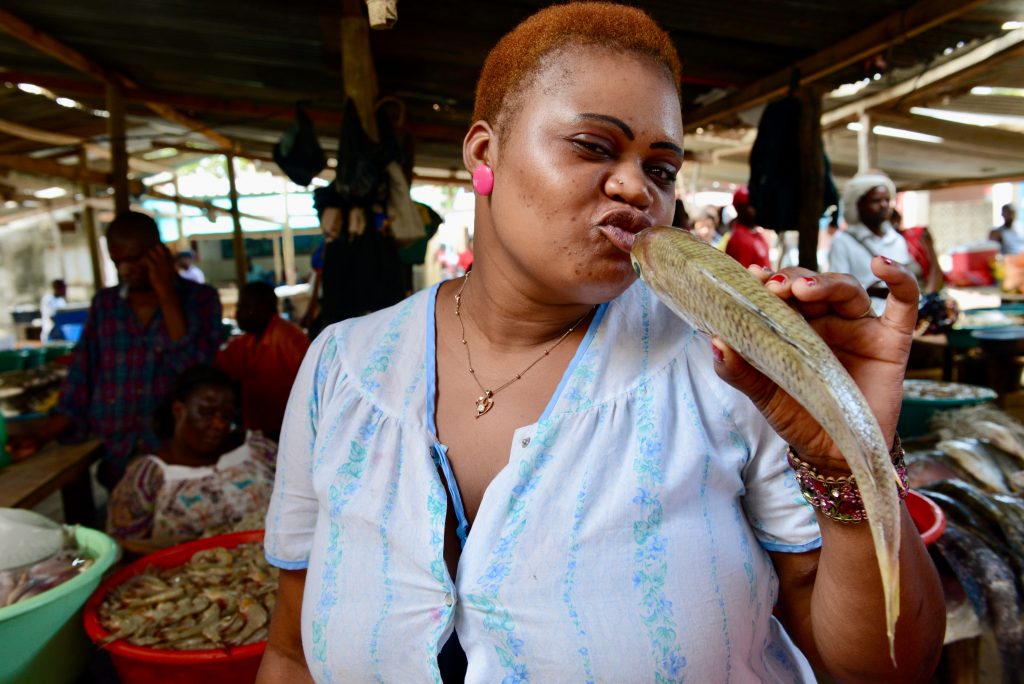
FISH - fishing for more than compliments
At sunrise in the village of Tokeh, 30km south of Freetown, capital of Sierra Leone. The whole village is on its feet, heading to the beach, where the villagers will be waiting for their fishermen to return from a long night out in the sea. Fish traders from Freetown, the owner of a little beach hotel nearby, dozen of kids, lots of mamas, hoping to get low-fat high quality proteins for their many children. When the fishermen arrive, their dugouts are mostly empty but for a few smaller fish. While on the horizon, massive commercial fishing vessels from Spain are patrolling up and down the coast, playing an uneven game with the local fishermen, catching the fish soon on sale in sushi boxes at our European supermarkets.
Fishing, the analogy of hunting, has been an important part of human culture since hunter-gatherer times. It is one of the few food production activities that have persisted from prehistory into modern days, surviving both the Neolithic Revolution and successive Industrial Revolutions. Fish are caught for relaxation and fish are caught for survival. Fishing feeds people around the world, still. As long as people harbour hope, they go fishing, all around the world.
